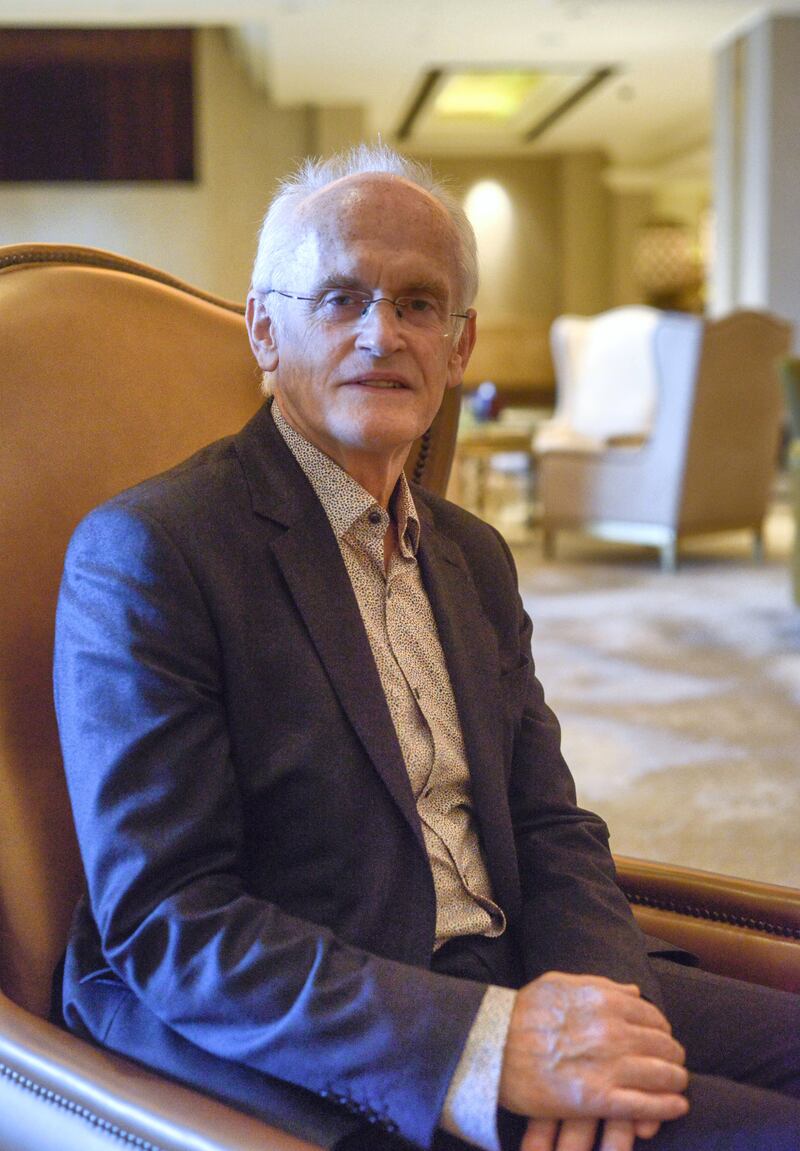A drug that can save the life of an overdosing addict and a treatment to help users quit are among the tools that could save lives and help in the battle against addiction, experts said.
On the closing day of the International Society of Addiction Medicine conference in Abu Dhabi, drug experts singled out several key treatments that they hope will soon be available.
A National Rehabilitation Centre (NRC) official said it is hoped the government will make naloxone - which can save the life of an overdosing addict - more widely available. At present, it is largely hospitals, doctors and paramedics have access to the injection. They also await a new new nasal spray designed for easier use.
Dr Ahmad El Kashef, head of research at the NRC, said he does not know how long it will take before this happens, adding that it "depends on approvals, maybe a year."
“We already wrote a recommendation and it was approved a year ago in the US and immediately after, we requested that it gets approved here as well.
“In the UAE it is mostly used in emergency rooms, ambulances and at the NRC, and there must be a doctor’s prescription because it is only available by injection. We still don’t have the nasal spray.”
Naloxone, which cannot be abused, could be kept at home by the families of recovering users.
The intention would be that if users did get their hands on a drug and overdose, a family member could save their life.
_____________
Read more
[ Abu Dhabi plans dedicated drug courts from next year after rise in substance abuse cases ]
[ Medics see gabapentin overtake tramadol to become number one drug for UAE addicts ]
[ Addiction conference hears children as young as nine smoking ]
_____________
The problem with an injection, Dr El Kashef said, is that most addicts don’t have clear unblocked veins, and it is very difficult to find a spot to insert the injection.
“It could take up to a minute or two to find the vein, and during that time they could die," he said.
Professor Sir John Strang, director of the National Addiction Centre at King's College London, was among the delegates at the ISAM conference on Sunday.
“If I had a son or daughter who was involved with heroin, I’d be worried that suddenly an overdose might occur and my son or daughter might die before the ambulance reaches us,” he said.
“This [naloxone] would prevent them from dying whilst waiting for the ambulance, so very similar to a family saying if my child has an epileptic fit or allergy I would like to have the emergency medicine.”
Sir John has played an integral part in calling for regulations that allow its free use in the UK, and in other countries such as Kazakhstan, Tajikistan and Ukraine - through work with the United Nations.
“I have been fortunate to be involved with advising the UK government for about nearly thirty years, and during that time we have realised to begin with, this was a noble project that might be explored,” he said.
“But now we realise this should be a standard part of treatment, just as if you have a child with severe allergy you’d expect the hospital to tell you how you would manage it while you are waiting for the ambulance.”
When it comes to treatment, there are medicines on the market that could help users kick their habit better.
Dr El Kashef said a new form of addiction treatment, the long-term buprenorphine injection, which could last up to one month in the addict’s body, is awaiting approval in the US.
“Once it gets approved there, we will immediately request that it gets approved here as well," he said.
Buprenorphine helps addicts to get clean and reduces withdrawal symptoms.
The benefits of this injection, as opposed to the existing form of Buprenorphine, only available in pills and tongue stickers, is that the patient does not have to physically go to the doctor every three days to get a fresh prescription for, as they currently do in the UAE.
The injection will last in his body for a week or a month.
“We have some patients who have to drive every three days, all the way from Umm Al Quwain or Ajman [to the NRC in Abu Dhabi], for the prescription, because we are allowed to prescribe for a maximum of three days.”
He said it will also help to cut demand on the black market, where people sell on their prescribed medicine.







